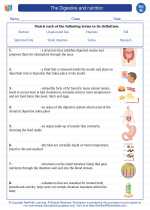Domains in Science
In science, a domain refers to a specific category or field of study within a larger discipline. It represents a broad area of knowledge that encompasses related concepts, theories, and principles. Domains help scientists and researchers organize and understand different aspects of the natural world.
Types of Domains
There are several major domains in science, each focusing on different aspects of the natural world:
- Biological Domain: This domain encompasses the study of living organisms, including their structure, function, behavior, and interactions with the environment.
- Physical Domain: This domain includes the study of non-living systems and phenomena, such as matter, energy, forces, and the properties of the physical universe.
- Chemical Domain: This domain focuses on the composition, structure, properties, and reactions of substances at the molecular and atomic level.
- Earth and Space Domain: This domain involves the study of the Earth, its atmosphere, geology, oceans, and the broader universe, including celestial bodies and phenomena.
- Environmental Domain: This domain explores the interactions between living organisms and their surrounding environments, including ecosystems, natural resources, and environmental sustainability.
Study Guide for Domains
When studying domains in science, it's important to understand the following key points:
- Identify the major domains in science and describe the primary focus of each domain.
- Explain how different domains in science are interconnected and how they contribute to our understanding of the natural world.
- Discuss real-world examples and applications of knowledge within each domain, such as the impact of biological research on medicine or the use of physical principles in technology.
- Explore the interdisciplinary nature of scientific domains, where concepts from multiple domains intersect to solve complex problems or advance scientific knowledge.
- Consider the ethical and societal implications of scientific research within each domain, including issues related to environmental conservation, public health, and technological innovation.
By mastering the concepts and connections within different domains, students can develop a holistic understanding of science and its relevance to the world around them.
Remember, understanding domains in science is essential for comprehending the diverse and interconnected nature of scientific knowledge.
.◂Science Worksheets and Study Guides Eighth Grade. The Digestive System & Nutrition

 Worksheet/Answer key
Worksheet/Answer key
 Worksheet/Answer key
Worksheet/Answer key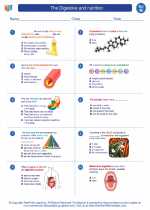
 Worksheet/Answer key
Worksheet/Answer key
 Vocabulary/Answer key
Vocabulary/Answer key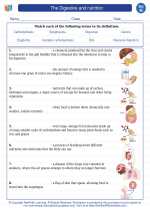
 Vocabulary/Answer key
Vocabulary/Answer key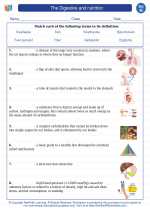
 Vocabulary/Answer key
Vocabulary/Answer key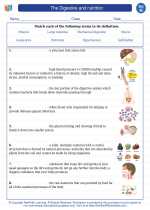
 Vocabulary/Answer key
Vocabulary/Answer key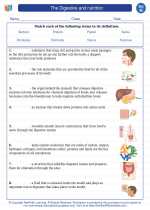
 Vocabulary/Answer key
Vocabulary/Answer key